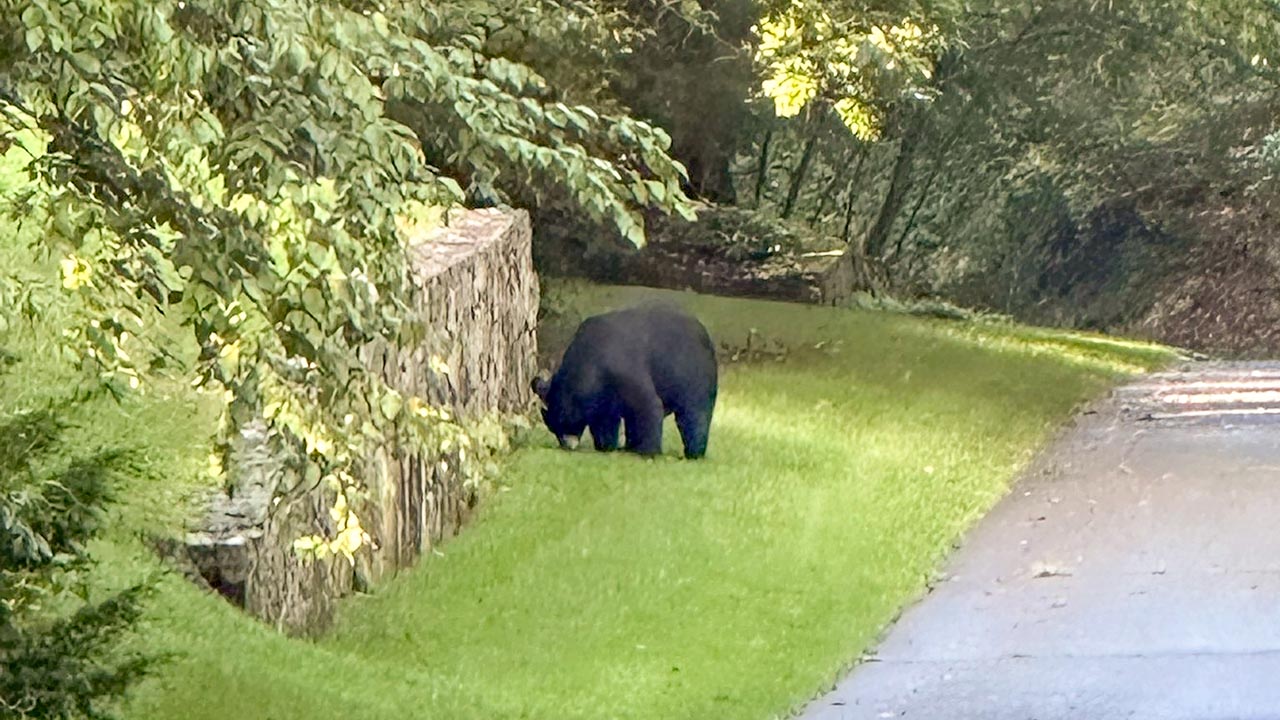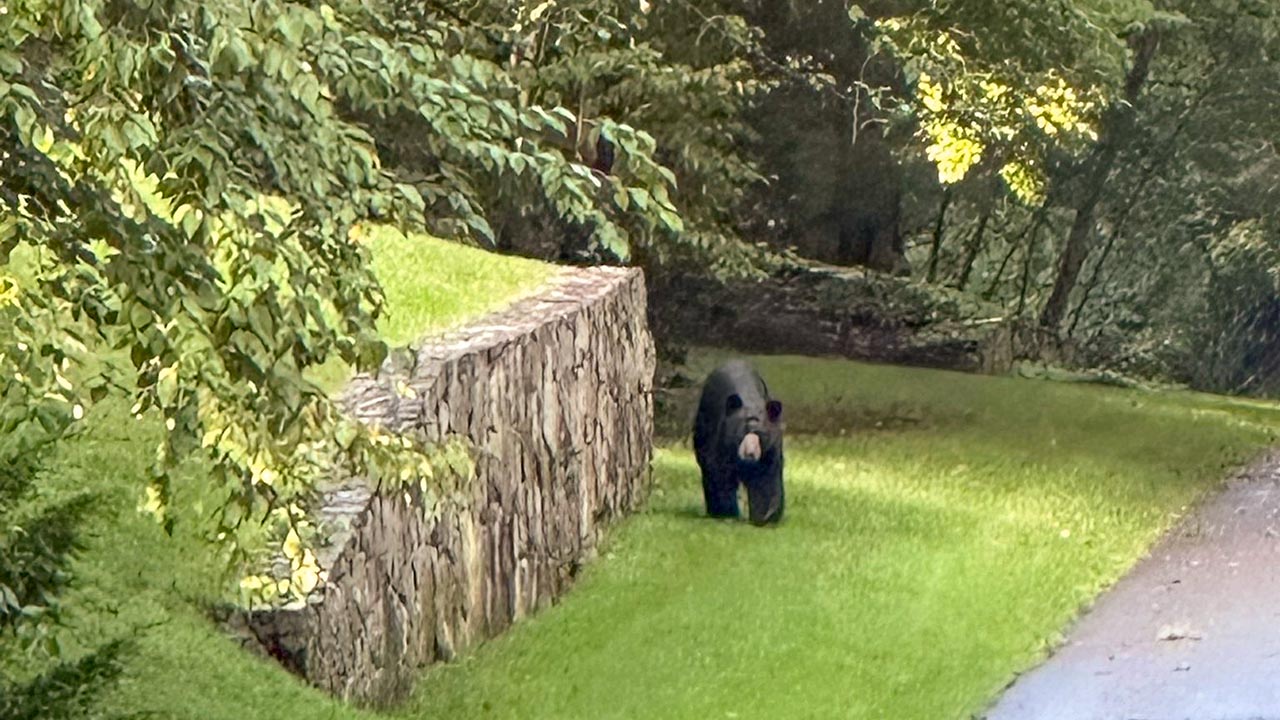Bear Sightings Up, What to Do

Photo: Ram Cherukuri. Details below
Bear sightings are increasing in town, a common occurrence this time of year until winter hibernation begins.
The cooler the weather gets, the more bears will be out looking for food as they bulk up for their long sleep.
According to wildlife officials, the black bear is the least dangerous of the species, accounting for only 67 lethal attacks on humans in North America in the past 120 years. They are generally timid and retreat from conflict with humans. An exception is a female bear with cubs, who will be fiercely protective of her offspring.
Advice from experts
Bears will be particularly attracted to your property if you put out bird feeders. They love suet, which they can smell from more than a mile away. Wildlife experts typically advise bringing in bird feeders at dusk and not hanging them on a porch or patio, or from a pole.
Bears will climb onto a porch to get to the feeders, and they are more than strong enough to bend down a metal pole to get to the seed and suet.
They also like garbage, so the advice is to keep trash cans in a garage or other fully enclosed structure and, if possible, only put them out right before collection by a hauler. It helps to periodically clean garbage cans and recycling bins with a diluted bleach solution to eliminate old food odors.
Keep garage doors closed. Open garages can entice visits not only from bears, but also raccoons, skunks, and snakes.
Bears are also attracted to chicken coops and beehives. Here, the best prevention is to encircle the enclosures with an electric fence capable of carrying 6,000 to 7,000 volts.
To eliminate the aroma of food outside, clean grills and outdoor dining areas, and forego feeding pets outside.
Encounters
If you hike with your dog, keep the dog on a lead. Typically, bears will not attack a dog, but they will defend themselves if a dog gives chase.
On your hike, carry bear spray, an air horn, or even just a whistle. The object, if you come face-to-face with a bear, is to make noise and act in an assertive manner while you gradually retreat, keeping an eye on the bear.
Don’t run. In most cases the bear will retreat as you do. But, says Animal Control Officer Mark Harper, if the animal does come toward you, “stand your ground and fight back with whatever is at hand.”
Repeat visitors
Mr. Harper says that once a bear finds food on your property, the odds are he or she will return from time to time. This is why it is important to remove things that attract them in the first place.
Bears cover a territory of about 10 to 15 miles in a circle, but when they find a food source, “they form a habit,” said Officer Harper.
Call Animal Control if you see a bear at your home: (203) 222-2642. Officers may be able to “haze” the bear (with non-lethal means) to condition it to conclude that its presence is unwelcome.
Don’t confront the bear yourself.

The photos in this story were taken on September 13 by Ram Cherukuri at 5:15 pm on Pepperbush Road, near the Jennings Woods Preserve of the Aspetuck Land Trust.
